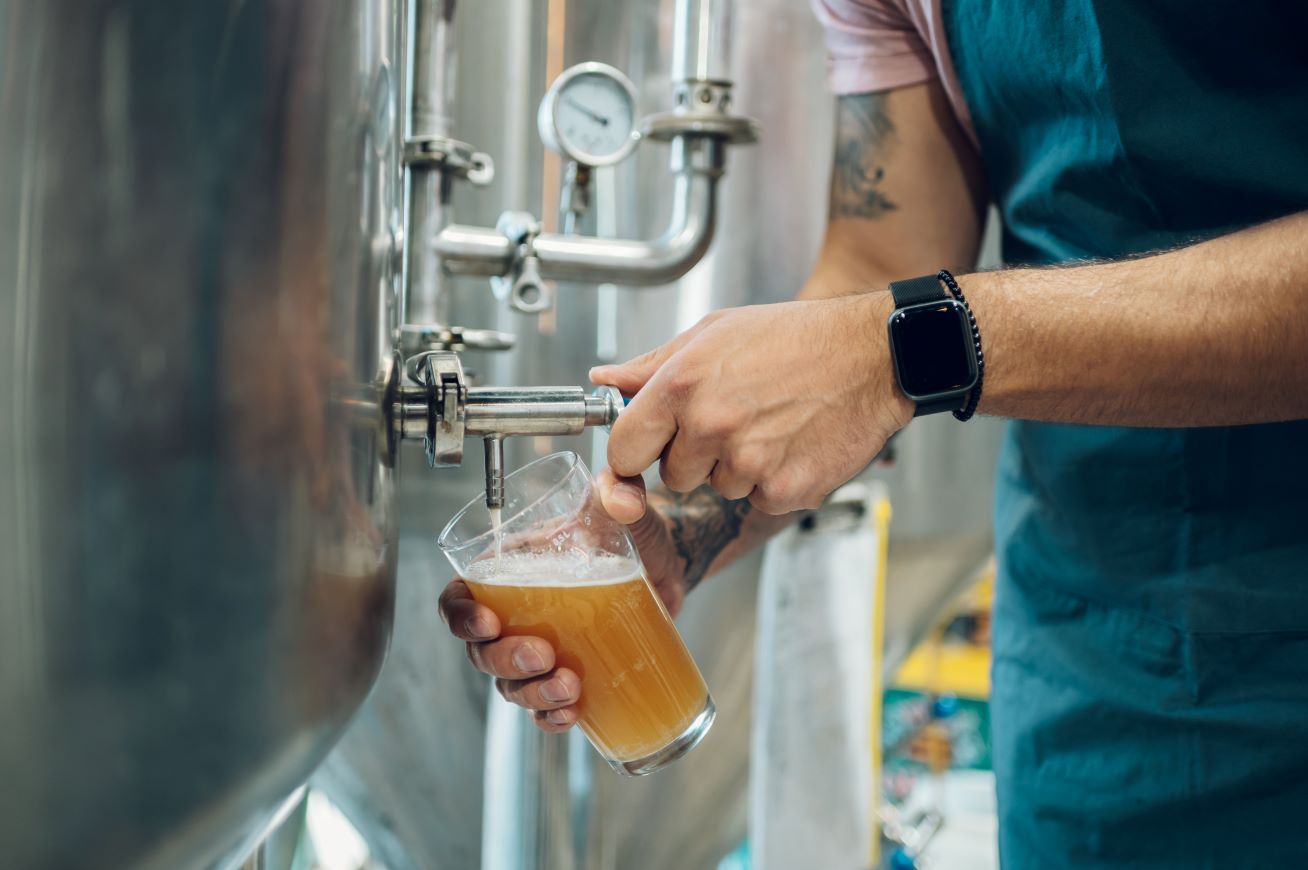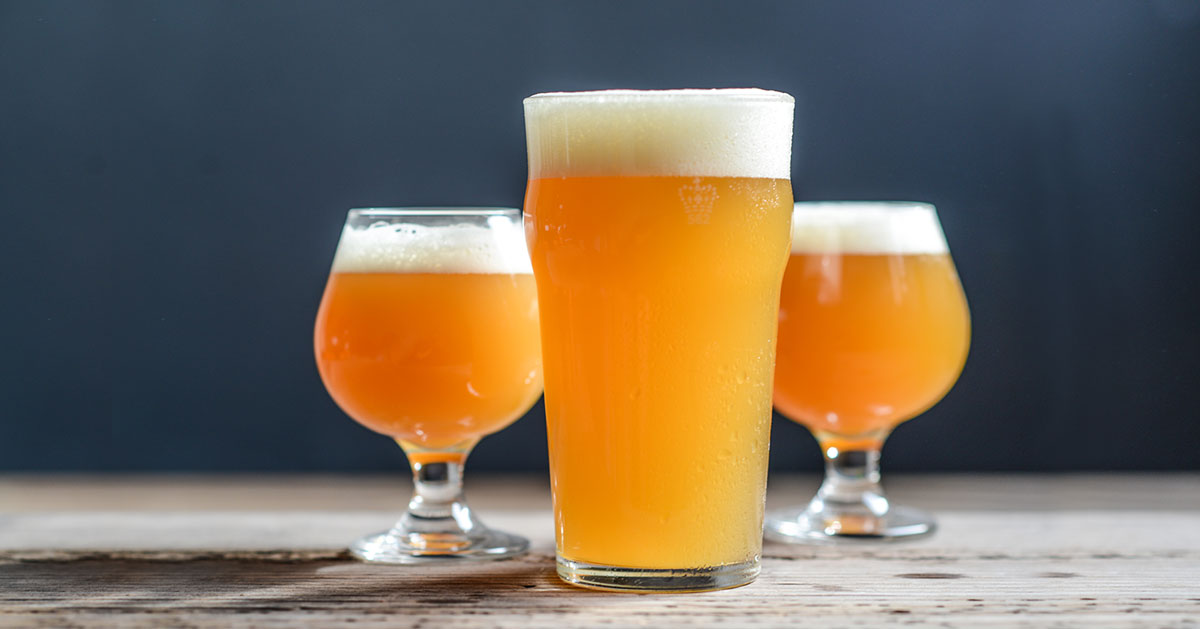How Long Do Homemade Beers Last?
Whether working with a beer-making kit or starting from scratch, all brewers must face the potential of wasted beer. Is there any scarier thought? We don’t think so. That’s why we’ve put together this guide to cover:
- The shelf-life of home-brewed beer
- How to store your beer to preserve its quality for longer
- How to pick a home brew kit that gets better with age
Let’s get started!
Does Homemade Beer Go Bad?
Assuming your homemade beer is infection free, it will eventually go bad — but not in the same way that other beverages and food do. You won’t be hospitalized with food poisoning, but the beer will not be as enjoyable as it was when you first brewed it. You may notice the following:
- Stale taste
- Decreased hop aroma and flavor
- Low carbonation
- Discoloring/browning
While the above qualities aren’t desirable for your beer, they aren’t catastrophic, either. Homemade beer is a relatively safe beverage to make yourself. Still, it’s best to stick to your recipe’s recommended expiration date so you and your fellow beer enjoyers can get the most out of your hard work! Learn more about homebrewing with the best beer making kits for beginners.
How Long Does Homebrew Last in Bottles?
On average, homemade beers last about twelve months in bottles before they start to deteriorate. Does that mean you should guzzle your brews down as soon as possible? Not at all—there’s still plenty of time to enjoy your home brews at your own pace! In fact, there are a couple of benefits to waiting before you start drinking:
- You should typically wait at least two weeks after bottling your beer before drinking it. This allows your brew to carbonate fully.
- Depending on your recipe, your beer’s taste may actually improve after sitting in the bottle for a month or two.
Drinking your beer at the right time during its shelf life will maximize your enjoyment. So will experimenting with new and delicious flavors! Discover the recipe for your next brew at Great Fermentations.
How Long Do Homemade Beers Last in the Fridge?
Storing your homemade beer in the fridge can help it last a bit longer, but not by much. You still will experience decreased hop aroma and bitterness after about 6 months to a year. Carbonation should last longer when the beer is cold.
How Long Does Beer Last in a Keg Untapped?
Commercial beer that is kegged, will be at its peak drinking for about 6 months. After that you can experience the same things that you would in homebrewed beer that is old. This rule only applies though if you are using a kegerator with CO2 to pour the beer. If you use a traditional pump tap that can be rented from a liquor store, then you’ll want to drink that beer in 12-24 hours. This is because the oxygen added to the keg will make your beer go flat after this timeframe.
How Long Does Beer Last in a Corny Keg?
With refrigeration and proper carbonation, your home-brewed beer can last up to a year in a Corny keg before you notice a decline in flavor quality. Are you looking for a great keg to store your beer in to preserve that crisp, delicious flavor you worked so hard to perfect? Explore Corny kegs and Corny keg accessories at Great Fermentations.
How Can I Age My Beer at Home?
The key to aging your beer at home is to create an environment with consistent conditions—like light and temperature. A dark room with an average temperature between fifty and sixty degrees is often ideal.
It’s also important to know which types of beer benefit from aging because not all do! Hoppy beers typically worsen in flavor from aging, while beers with malt-leaning flavor profiles and higher alcohol content benefit from time. If you want to try aging your beer, start with Belgian ales or imperial stouts.
How Long Does It Take To Age Homemade Beer?
You’ll typically notice changes in a beer’s flavor after six months of aging. Examples of flavor changes are:
- Mellowed bitterness from hops
- Less flavor and aroma from hops
- Some added flavors and aromas—like chocolate—fade
- Other added flavors and aromas—like dried fruit—become stronger
Remember, not all beers improve with age, so be sure to take a specific approach for each batch you brew!
How Long Should I Age My Beer?
When aging beer, six months to one year is typically the best window. That’s because it usually takes six months for aging to affect your brew’s flavors and aromas, and one year is when many beers start going stale. Some beers, like hoppy recipes, shouldn’t be left to sit for more than six months because their key flavors will start to fade.
Set Your Home Brewery up for Success with Great Fermentations!
Whether you’re looking for a new recipe to try, a keg to keep your beer fresh, or beer ingredient kits that get better with age, you can find what you need at Great Fermentations. Our online shop makes it easy to explore your options. Or, if you’re in the Indianapolis area, come on by! We’d love to help you with all things homebrewing.



